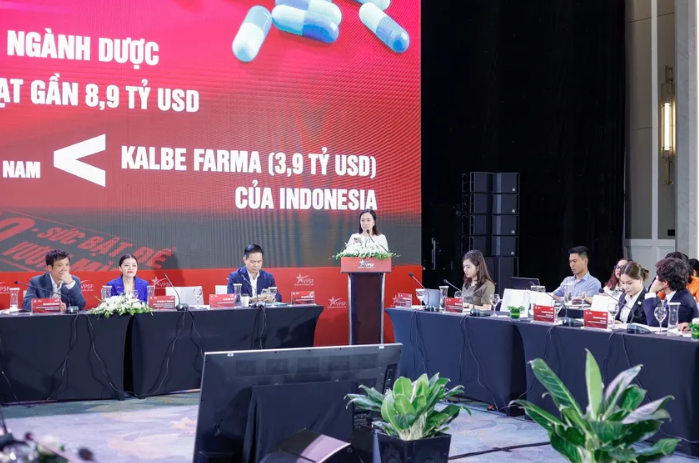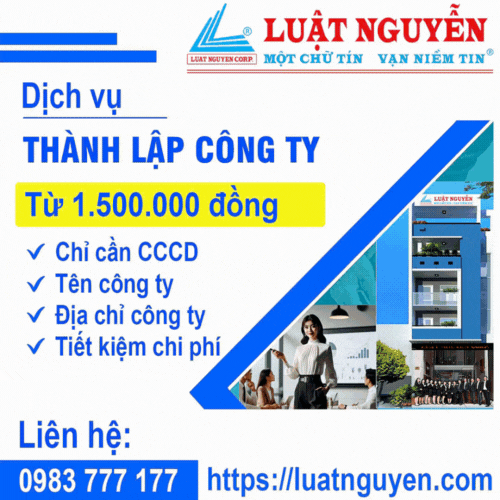Vietnam’s Small Pharma Firms Face Wave of Foreign Takeovers
Bùi Cẩm Vân, Corporate Governance Director at BuyMed, highlighted that in today’s economy, the key drivers of growth are no longer just capital, land, or labor, but also data and technology. However, when these resources are fragmented or monopolized, young and emerging firms face significant barriers. Without strong production tools, companies struggle to compete, innovate, and expand.

Vietnam currently has around 250 pharmaceutical factories, yet most manufacture similar products, offering little differentiation. The lack of collaboration among local firms has resulted in thin profit margins and few new product launches. Compounding this issue is a protectionist mindset: many firms focus only on securing their domestic market rather than pursuing international competitiveness or investing in innovation.
As a result, Vietnamese pharma companies remain too small to negotiate with global players or to invest meaningfully in R&D. This has left the local market heavily dependent on imported drugs while consumers have fewer treatment options. The absence of national-scale champions also makes the industry more susceptible to foreign takeovers. Cases like DHG being acquired by Japan’s Taisho, Imexpharm by China’s Lizvon, and DBD with Swiss shareholder KWE show how quickly local firms are losing ground, even on home soil.
Speakers at VPSF argued that this weakness in the pharmaceutical industry mirrors broader challenges across many Vietnamese private enterprises: fragmentation, weak institutional frameworks, and lack of innovation.
To unlock the private sector’s potential, experts stressed the urgent need for a transparent, stable, and enabling regulatory environment. Lưu Thanh Mẫu, Vice President of the Vietnam Young Entrepreneurs Association, emphasized that inconsistencies in legal frameworks — particularly in relation to digital assets, data ownership, and intellectual property — are holding back growth. In addition, policies on green transition and sustainable development remain vague and underdeveloped.
Đậu Anh Tuấn, Deputy Secretary General of VCCI, added that to build a truly enabling business environment, Vietnam must stop criminalizing purely economic and civil disputes. Drawing from international practice, he argued that legal reforms should clearly separate criminal, civil, and administrative responsibilities while creating more proactive and flexible legal support mechanisms for businesses.
Ý kiến bạn đọc
Những tin mới hơn
Những tin cũ hơn
Luật sư Nguyễn Thị Hồng Nga - Hành trình cống hiến và trưởng thành cùng Luật Nguyễn
Trong đội ngũ luật sư kỳ cựu của Luật Nguyễn, có những người đã gắn bó từ thuở mới chập chững vào nghề, mang theo bầu nhiệt huyết của tuổi trẻ và khát khao cống hiến. Luật sư Nguyễn Thị Hồng Nga là một trong số đó. Từ một cô sinh viên luật thực tập cho đến một luật sư chính thức, chị đã có hơn...
-
 How to change a yellow license plate to a white one after stopping business use
How to change a yellow license plate to a white one after stopping business use
-
 Ô tô biển vàng ngừng kinh doanh có được đổi sang biển trắng?
Ô tô biển vàng ngừng kinh doanh có được đổi sang biển trắng?
-
 Visually Impaired Individuals Can Become Lawyers if Requirements Are Met
Visually Impaired Individuals Can Become Lawyers if Requirements Are Met
-
 Người khiếm thị vẫn có thể trở thành luật sư nếu đáp ứng đủ điều kiện
Người khiếm thị vẫn có thể trở thành luật sư nếu đáp ứng đủ điều kiện
-
 Làm thế nào để hàng Việt tiếp cận thị trường toàn cầu?
Làm thế nào để hàng Việt tiếp cận thị trường toàn cầu?
- Đang truy cập78
- Máy chủ tìm kiếm1
- Khách viếng thăm77
- Hôm nay20,113
- Tháng hiện tại392,916
- Tổng lượt truy cập1,161,579
-
 Cập nhật địa chỉ trụ sở Công an cấp xã tại TPHCM sau sáp nhập
Cập nhật địa chỉ trụ sở Công an cấp xã tại TPHCM sau sáp nhập
-
 Từ ngày 1.7: Cách ghi địa chỉ trên hóa đơn điện tử thay đổi
Từ ngày 1.7: Cách ghi địa chỉ trên hóa đơn điện tử thay đổi
-
 Địa chỉ 19 Tòa án nhân dân (TAND) khu vực TP.HCM sau sáp nhập
Địa chỉ 19 Tòa án nhân dân (TAND) khu vực TP.HCM sau sáp nhập
-
 Hóa đơn GTGT xuất cho khách cá nhân có bắt buộc ghi CCCD?
Hóa đơn GTGT xuất cho khách cá nhân có bắt buộc ghi CCCD?
-
 Thông tư 40/2021 :Quy định về nghĩa vụ thuế đối với hộ kinh doanh
Thông tư 40/2021 :Quy định về nghĩa vụ thuế đối với hộ kinh doanh








